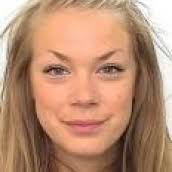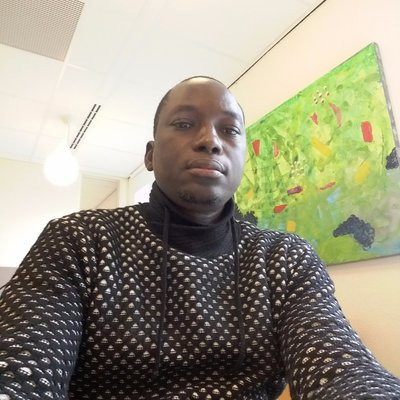Event Summary
Speakers
- Nuria Branders, Social Protection Specialist, The World Bank
- Cheikh Kane, Red Cross - Red Crescent Climate Center
- Alvina Erman, GFDRR / World Bank
- Ibrahima Fofana, Wetlands International Mali
- Modérateur: Dieynaba Ndiaye, General Secretary of the Senegalese Social Protection Direction
Description
Jeudi 21 Novembre, 14:00 – 15:30, Salle 2
Les catastrophes naturelles jouent un rôle important en empêchant de nombreux ménages de sortir de la pauvreté et en y ramenant souvent ceux qui ont pu y échapper. La réponse aux risques de catastrophe est donc un élément important de la réduction de la pauvreté, en particulier dans le contexte de chocs récurrents. Compte tenu de l’importance accrue accordée à la fragilité, à la pauvreté transitoire, à la gestion des risques de catastrophe et aux interventions en cas de crise, il devient essentiel d’élaborer et d’améliorer des méthodes d’identification des personnes plus vulnérables à la pauvreté. Cette session a pour objectif
(i) de comprendre le concept et l’importance de la vulnérabilité et ses liens avec la pauvreté et les politiques et
(ii) de discuter de la manière de cibler les efforts et de concevoir des interventions pour faire face à la vulnérabilité avec des exemples de politiques et de la société civile.
Speaker bios
Nuria Branders is a Social Protection Specialist at the World Bank based in Senegal. She works with the government to develop a shock responsive social protection system. Previous to joining the bank, she worked with several UN agencies, donor agencies and iNGos in thematics related to food insecurity, livelihoods and cash transfers.
Cheikh Kane est chercheur à l’IRD et actuellement conseiller politique en matière de résilience au climat au Centre climatique de la Croix-Rouge et du Croissant-Rouge à La Haye, aux Pays-Bas. Il a été assistant technique au ministère français des Affaires étrangères, détaché auprès de l’ACMAD.
 Alvina Erman is an Economist at the Global Facility for Disaster Reduction and Recovery (GFDRR) at the World Bank. Since joining the World Bank in 2013, Alvina has worked in East, West and Southern Africa, South America and the Caribbean. Her research at GFDRR focuses primarily on the link between disaster risk, poverty and gender. She specializes in household and firm survey analysis. In 2019, GFDRR published the report « Lifelines – The Resilient Infrastructure Opportunity « for which she conducted analysis on the impact of infrastructure disruptions on households and firms. She holds a master’s degree in Economics.
Alvina Erman is an Economist at the Global Facility for Disaster Reduction and Recovery (GFDRR) at the World Bank. Since joining the World Bank in 2013, Alvina has worked in East, West and Southern Africa, South America and the Caribbean. Her research at GFDRR focuses primarily on the link between disaster risk, poverty and gender. She specializes in household and firm survey analysis. In 2019, GFDRR published the report « Lifelines – The Resilient Infrastructure Opportunity « for which she conducted analysis on the impact of infrastructure disruptions on households and firms. She holds a master’s degree in Economics.
 Mr.Ibrahima Sadio Fofana is a Socio-Anthropologist with a Master’s degree from the University of Bamako in Mali. Between 2004 and 2011, Mr. Fofana worked as project coordinator at ASG in partnership with World Education, Action Mopti, PADK / CTB focusing on literacy and environmental education and decentralization. He joined the large Wetlands International family in Mali in 2011, where he was project coordinator for Disaster Risk Reduction, Climate Change Adaptation, Ecosystem Management and Restoration in the Inner Niger Delta Field (DRR-CCA-EMR). From January 2016 to now, he is the Project Manager (Dialogue for Integrated Risk Management) of the Alliance Partners for Resilience (PfR). This advocacy-lobbying project strengthens civil society organizations to provide advocacy messages to strengthen their resilience to natural disasters in the Niger, Sourou and Senegal basins.
Mr.Ibrahima Sadio Fofana is a Socio-Anthropologist with a Master’s degree from the University of Bamako in Mali. Between 2004 and 2011, Mr. Fofana worked as project coordinator at ASG in partnership with World Education, Action Mopti, PADK / CTB focusing on literacy and environmental education and decentralization. He joined the large Wetlands International family in Mali in 2011, where he was project coordinator for Disaster Risk Reduction, Climate Change Adaptation, Ecosystem Management and Restoration in the Inner Niger Delta Field (DRR-CCA-EMR). From January 2016 to now, he is the Project Manager (Dialogue for Integrated Risk Management) of the Alliance Partners for Resilience (PfR). This advocacy-lobbying project strengthens civil society organizations to provide advocacy messages to strengthen their resilience to natural disasters in the Niger, Sourou and Senegal basins.
